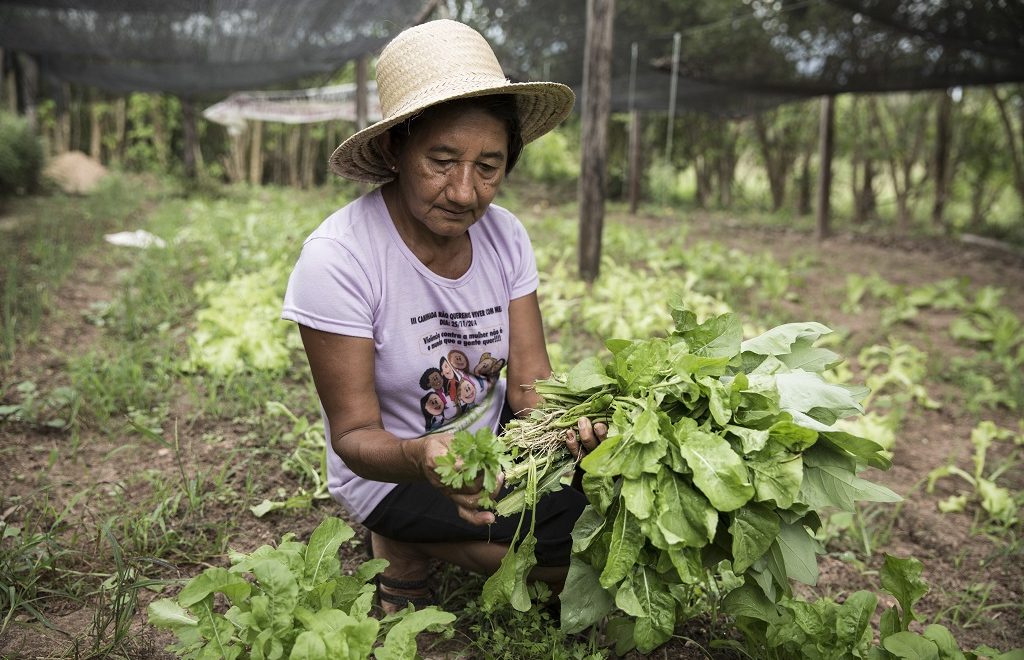Flash flooding, long periods of sustained drought and even more extreme storm seasons. The impacts of climate change are already being felt here in the U.S. and around the world. We need to act fast by ending our use of fossil fuels and transition to renewable energy soon, if we’re going to meet the goal set by the Paris agreement of staying under 1.5 degrees of warming.
We risk doing harm to both people and our planet though, if we support any kind of so-called renewable fuel, without fully considering the impacts. The transition away from fossil fuels must be a transition towards truly clean, community controlled renewable energy. We cannot afford to place our bets on false solutions.
In recent weeks, two new publications have helped illustrated the risk of false solutions, specifically related to the Renewable Fuel Standard (known as the RFS). This policy was put in place with good intentions in 2005 and expanded in 2007, the idea being to support a policy that provided a liquid fuel alternative to fossil fuels – particularly gas – for transportation fuels in the U.S. However, despite good intentions this law has not been good for the environment or for people living in poverty around the world.
Next-generation fuel has yet to develop in significant quantities, and so more than 10 years after the law was initially passed, we remain dependent on food and land based biofuels – particularly corn ethanol. When you take into account the total emissions from producing, processing and burning these biofuels, they often fail to reduce emissions.
But it doesn’t stop there, because the RFS has helped drive the expansion of corn and soy mono-cropping in the United States. This conversion of natural grasslands to farm land has not only been bad for the planet, but undermines biodiversity of both plant and animal life. As for the impacts on people, food-based biofuels increase hunger and undermine land rights globally, as local farmers are pushed off their land to make way for biofuels plantations.
Food-based biofuels increase hunger and undermine land rights as local farmers are pushed off their land to make way for biofuels plantations.
Under the RFS, the EPA is supposed to monitor the policy’s impact on the environment and produce regular reports. However, the Inspector General of the Environmental Protection Agency recent audit on RFS implementation found the EPA had not fulfilled its legally mandated environmental oversight of the program.
In particular, the EPA has not produced the reports it’s required to deliver on the impact the RFS is having on conservation (required every three years) and air quality (two reports no later than December of 2010). Considering evidence that food and land based biofuels hurt both, this is especially concerning.
Added to this, last Thursday, yet another study was published that found that corn ethanol is not good for the climate.
Many biofuel emissions models assume that growing and harvesting biofuels and burning them is carbon neutral. The idea is basically that the plants grown for biofuels absorb as much carbon as they emit when burned for energy. So any emissions from biofuels are from the processing of the feedstock into the fuel.
But this new research found that only 37% of carbon emitted through burning biofuels was absorbed by biofuel growth between 2005 and 2013. These findings suggest that the tools that environmental regulators are using to determine how environmentally-friendly biofuels like corn ethanol are, are fundamentally flawed, and ignore a significant amount of emissions.
Only 37% of carbon emitted through burning biofuels was absorbed by biofuel growth between 2005 and 2013.
If we’re going to effectively and justly address climate change, good intentions and so-called green-solutions are not enough. Food-based biofuels will not help the planet, they’ll only make things worse.
Food-based biofuels such as corn ethanol undermine food security, make air and water quality worse, and drive deforestation. In fact, corn ethanol might be worse for the planet than gasoline. This only continues the cycle that we have found ourselves in now, where energy consumption wreaks environmental and social havoc, warms the planet, but still leaves billions of people without their basic energy needs met.
The transition to renewable energy must produce truly clean, renewable energy, controlled by local communities. Renewable alone isn’t enough.

